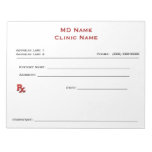Challenge: Rising costs, declining reimbursements
There’s tremendous urgency for change as the environment grows increasingly unfriendly for doctors in private practice. Now representing just 22% of all practices, (Physicians Advocacy Institute Report 2022-24) the independent physician is in real danger of disappearing altogether. The combination of increased costs to operate a traditional practice and continual cuts to Medicare reimbursements have contributed to an overall 29% downward slide in Medicare compensation over the last two decades, according to the American Medical Association (AMA).
Reform may lie in the fate of multiple bills now in Congress. As I write this, the proposed 2.8% cut in the 2025 Medicare Physician Fee Schedule is set to go into effect on January 1st, 2025 unless the Medicare Patient Access and Practice Stabilization Act is passed, eliminating the cut and introducing a 1.8% increase. Additionally, bills to implement site-neutral payments have been proposed to remove one of the major financial incentives driving hospital consolidation, and much-overdue conversations are beginning to enact permanent inflationary payment updates to Medicare reimbursements. Commercial payers, caught in a harsh spotlight emphasized by December’s tragedy, may feel pressure to follow suit with measures to help relieve the financial burdens felt by physicians and patients. But will it be too little and too late?
I believe a better solution is offered through concierge medicine. In the more than two decades since its inception, this model has protected doctors from the tightening vise of declining reimbursements on one side and perpetually rising operating costs and inflation on the other. It has defined economic and professional freedom for our physician clients by providing them with a reliable, predictable, and most importantly, sustainable revenue base of membership fees. The pandemic offered further evidence of the model’s undeniable success, enabling our affiliated doctors to provide personalized care and prompt attention to their smaller patient panels without financial concerns from the sharp reductions in office visits and procedures. Post-pandemic, their practices have continued to grow, frequently necessitating the addition of a new physician to the team to meet increased patient demand.
Challenge: Restoring physician satisfaction
Reported levels of burnout have thankfully fallen below 50% for most physicians in the latest Medscape and AMA surveys, but as everyone agrees, there is still much work to do. Of particular note is that doctors involved in front line primary care, such as internal medicine, family medicine, pediatrics and OB/GYN are still experiencing higher rates of burnout. All physicians, however, including specialists in cardiology, endocrinology, rheumatology, neurology and pulmonology, continue to face ongoing financial, professional and personal pressures, and limited options for change. They can seek employment by a hospital system, join a larger multi-specialty group, leave medicine altogether - or convert to an alternative practice model.
At Specialdocs, we’ve long championed the concierge medicine solution, proudly bearing witness to its lifesaving impact for our affiliated doctors across the country. Whether a beleaguered physician mom struggling to achieve work-life balance, a discouraged midlife doctor reluctantly preparing for early retirement, or a young doctor frustrated with the impersonality of practicing in a large hospital system, conversion to our model has ushered in a new era of unparalleled career satisfaction.
Challenge: Adapting to rapid developments in technology
Technological practice advances have been a decidedly mixed bag for physicians over the years, bringing the success of remote monitoring for chronic conditions and convenience of telemedicine, but leaving the universally disliked imprint of cumbersome EHRs. It’s understandable that artificial intelligence, still in nascency, is alternately viewed as friend or foe in health care.
In 2025, the power of AI will likely increasingly be deployed to ease the administrative burden by streamlining tasks such as coding, scribing, and management of prior authorizations and reimbursement denials. With the ability to process and analyze information far more quickly than the human brain, AI’s potential to enhance diagnoses and treatments certainly feels exhilarating. But we must proceed with caution as being too early an adopter is frequently tantamount to being wrong. Hence, the imperative for well-defined guardrails around AI will become even more imperative in 2025, as well as a firmer understanding of what cannot be achieved– chief among them, replacing the sacrosanct physician-patient relationships built over a lifetime.
Challenge: Delivering value-based care
Since 2010, the shift from fee-for-service to value-based care has been widely promoted and pursued. However well-intentioned, value-based care may be the latest example of health care programs that overpromise and under deliver to all its constituents. A recent survey illustrates patients’ rising dissatisfaction with the U.S. health care system: for the first time in Gallup’s two-decade Annual Healthcare Poll, more than half of Americans rated the quality of health care as subpar, with 31% saying it is “only fair” and a new high of 21% calling it “poor.” Further, more than 7 out of 10 Americans believe the health care system has major problems or is in crisis.
I have long maintained that concierge medicine is the only model that really delivers on the pillars of value and quality in health care by benefiting physicians, patients, payers/employers and the health care system. Our physician clients treasure the rare gift of time to truly personalize their care; their patients value timely appointments and being seen before a serious illness develops; payers see fewer claims from concierge patients because of shorter hospital stays and decreased readmissions; and everyone benefits from the dramatic reduction in visits to the ER or urgent care facilities.
2025 can be a year of progress, action and optimism if you seize the opportunity for change.
______________________________
Terry Bauer is the CEO of Specialdocs Consultants, a pioneering company dedicated to transforming physicians’ professional lives since 2002 with a change to its industry-leading concierge medicine model. Medical Office Supplies

Manual Prescription Pad (Large - White) Memo Pad

Manual Prescription Pads (Light Blue) Notepads

Manual Prescription Pads (Light Yellow) Notepad

Manual Prescription Pads (Light Pink) Notepad
 Billing and Collection Supplies
Billing and Collection Supplies
 Business Cards and Stationary
Business Cards and Stationary
 Chart Labels
Chart Labels
 Medical and Rx Pads
Medical and Rx Pads
Medical Office Supplies
15% Off All Products

Manual Prescription Pad (Large - White) Memo Pad

Manual Prescription Pads (Light Blue) Notepads

Manual Prescription Pads (Light Yellow) Notepad

Manual Prescription Pads (Light Pink) Notepad
No comments:
Post a Comment